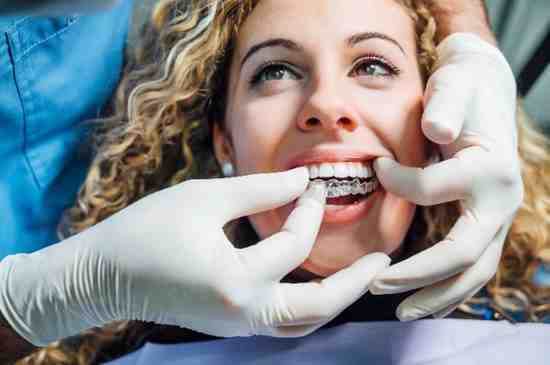Tooth pain and deep decay can often be symptoms of underlying issues within the tooth’s root. In Bedford, patients now have access to advanced root canal treatments that not only address infection but also preserve natural teeth wherever possible. Combined with modern restoration techniques, damaged or infected teeth can be saved and restored to full function. This article explores how root treatments have evolved, when they’re necessary, and the solutions available to repair and rebuild your smile with long-lasting results.
When Root Treatment Becomes Necessary
Root canal therapy is often recommended when the pulp inside a tooth becomes infected or inflamed. Left untreated, this can lead to abscesses, bone loss, or even tooth loss.
Common causes include:
- Deep cavities that reach the nerve
- Cracked or broken teeth from trauma
- Repeated dental procedures on the same tooth
- Gum disease leading to internal infection
- Severe tooth sensitivity or spontaneous pain
Prompt treatment not only saves the tooth but also prevents the need for more invasive procedures later on.
The Modern Root Canal Procedure
Modern root canal therapy is far more comfortable and efficient than its reputation suggests. With digital imaging and rotary instruments, dentists in Bedford can treat infected teeth precisely and effectively.
Key steps in the process:
- Numb the area for a pain-free procedure
- Remove infected or damaged pulp
- Clean and shape the root canals
- Fill the space with biocompatible material
- Seal the tooth with a temporary or permanent filling
Most root canals are completed in one to two visits and are followed by a restoration to reinforce the tooth.
Crowning the Tooth for Long-Term Protection
After a root canal, the tooth often requires a crown to restore strength and function. A dental crown covers the entire tooth, preventing cracks and withstanding everyday biting pressure.
Benefits of crowns after root treatment:
- Restores tooth shape and size
- Provides added strength and durability
- Seals the tooth to prevent reinfection
- Improves aesthetics, especially on front teeth
- Blends seamlessly with natural teeth
With proper care, crowns can last over a decade and are essential in extending the life of a root-treated tooth.
When Extraction Is the Better Option
Not every infected tooth can be saved. If the damage is too severe, or if the tooth structure is compromised, extraction may be the safer and more predictable path.
Situations requiring extraction:
- Vertical fractures in the tooth
- Infections that have spread to surrounding bone
- Insufficient remaining tooth structure
- Failed previous root canal therapy
- Inaccessible canals or complex anatomy
Following extraction, tooth replacement becomes the focus, ensuring your smile remains functional and complete.

Permanent Tooth Replacement with Implants
When a tooth can’t be saved, dental implants Bedford offer a strong and reliable solution. Implants are placed into the jawbone and topped with a custom crown, replicating the full function and appearance of a natural tooth.
Why patients choose implants:
- Prevents jawbone shrinkage
- Feels like a real tooth when chewing or speaking
- Doesn’t rely on neighbouring teeth for support
- Highly durable with minimal maintenance
- Blends with existing teeth for a natural look
- Implants are ideal for patients looking for a long-term replacement with minimal lifestyle disruption.
Multiple Tooth Restorations and Smile Repair
In cases where infection or decay has affected several teeth, dentists may recommend a comprehensive restoration approach. This often combines several treatments to rebuild both function and appearance.
Treatment options may include:
- Multiple root canals and crowns
- Implant-supported bridges for missing teeth
- Partial dentures for short-term solutions
- Periodontal care to ensure gum health
- Cosmetic treatments to refine the final result
Your dental team will create a tailored plan, balancing efficiency, comfort, and long-term success.
Invisalign and Restoration Planning
Tooth alignment plays a crucial role in restoration success. If spacing, crowding, or bite alignment are contributing factors, invisalign Bedford may be recommended before or after restorative treatment.

Benefits of incorporating Invisalign:
- Corrects uneven bite that may damage restorations
- Provides space for implant or bridge placement
- Reduces grinding and excessive pressure
- Improves oral hygiene by aligning teeth
- Supports long-term retention of dental work
The clear aligners are subtle, removable, and ideal for adult patients undergoing complex restoration.
Combining Function and Aesthetics
| Restoration Type | Purpose | Cosmetic Benefit |
| Root Canal + Crown | Save infected teeth, restore strength | Natural appearance with matching crown |
| Dental Implant | Replace lost tooth permanently | Blends seamlessly with adjacent teeth |
| Invisalign | Align teeth for comfort and hygiene | Enhances smile symmetry and balance |
| Composite Bonding | Repair small chips or damage | Smooth, tooth-coloured finish |
| Veneers | Improve front teeth after root work | Whitens and refines appearance |
By combining restorative and cosmetic care, patients benefit from both healthy function and renewed confidence.
What to Expect During Recovery
Post-treatment recovery is typically mild and manageable with over-the-counter pain relief and aftercare instructions from your dentist.
Typical recovery timeline:
- Mild discomfort for 24–48 hours post-procedure
- Soft food diet for a few days if tenderness occurs
- Avoid chewing on the treated side initially
- Return to work or routine activities the next day
- Final crown placement after 1–2 weeks if needed
Good oral hygiene and follow-up visits ensure smooth healing and restoration success.
How to Maintain Root-Treated and Restored Teeth
Just like natural teeth, root-treated and restored teeth need regular maintenance to remain healthy and functional.
Maintenance tips:
- Brush twice daily with a fluoride toothpaste
- Use floss or interdental brushes to clean around crowns
- Attend regular hygiene visits for scaling and polishing
- Use a nightguard if recommended to avoid pressure on restorations
- Inform your dentist of any discomfort or changes
With proper care, your treated teeth can last just as long as healthy ones.
Why Bedford Patients Choose Comprehensive Care
| What Patients Value | What Our Clinics Provide |
| Quick diagnosis | Same-day consultations and imaging |
| Long-term solutions | Durable materials and advanced techniques |
| Clear treatment options | Transparent guidance and personalised plans |
| Comfort-first approach | Gentle, reassuring dental care |
| All-in-one service | Root therapy, restoration, and Invisalign |
Bedford dental practices focus on restoring not just teeth, but your overall confidence and wellbeing.
Conclusion
Severe decay or tooth infection doesn’t have to result in extraction or discomfort. In Bedford, advanced root treatments paired with expert restoration provide patients with lasting, natural-looking solutions. From root canal therapy and custom crowns to dental implants and Invisalign, there’s a full spectrum of options to rebuild both your smile and your confidence. At Smilo Dental Implants Group, we deliver comprehensive care with precision and compassion—ensuring your dental health is protected now and into the future.





